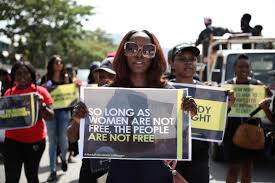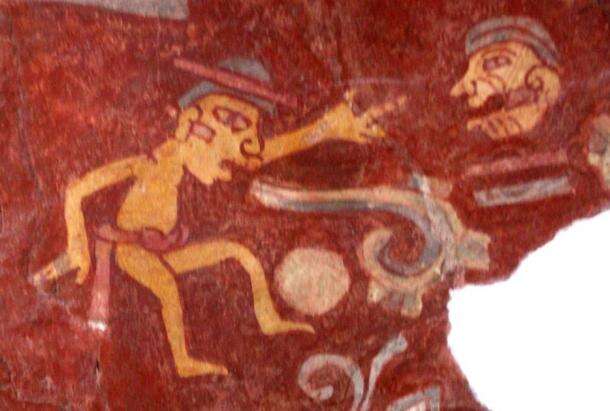Severing History: The Danger of Weaponized Disremembering in Fascist Attacks on Education

Political memory relies, in many ways, on the collective remembrance and significance of historical events. To understand the current political climate and its impending dangers, there is an inherent requirement to understand the past, and the realities of history that have led us to the immediate moment. As fascist politics and rhetoric are on the rise, far-right agents have hijacked political memory to inspire ideological hate in our public conscience, and education provides a pivotal space to begin disseminating fascist ideologies and histories and as such, attacks on public curricula, books, and educational structures become fundamental in far-right indoctrination across democratic nations.
The concept of political memory became of particular interest in the 1960s, following a cascade of hugely significant and catastrophic events in the western world, primarily Europe (Verovšek “Collective memory, politics, and the influence of the past: the politics of memory as a research paradigm” 534). Aptly dubbed the “Memory Boom,” the late 60s ushered in a specialized interest around the impact of collective memory and social consciousness; amidst the Cold War, student-led anti-war and anti-fascist movements, and a rise in anti-colonial movements, theorists began noting the powerful “grip” that the events of World War II had “retain[ed]…on memory and myth” (Reynolds 469). As a core motivator and driver of social awareness, political memory has showcased its capacity to challenge and imagine futures beyond our current situation; waves of anti-fascist political movements grew out of a fear of repeating the Second World War, anti-communist movements and political unrest in historically communist countries caught on after the fall of Soviet Russia and the end of the Cold War, and political and global affiliations were born from historical memory and allegiance in the wake of global catastrophes. While political memory focuses primarily on aspects of political life (although arguably we have few non-politicized areas of social existence now), it is embroiled in and empowered by collective memory. Political histories exist and persist in the social consciousness because there is a collective acknowledgement and agreement that these events are significant. In many ways, collective and political memory become one and the same. The collective awareness of a historical event, its significance, its impact, and its dangers becomes the signifier for its importance within political spheres.
Katharine Hodgkin and Susannah Radstone point to the space within political and collective memory that highlights its vulnerability when “our understanding of the past has strategic, political, and ethical consequences…[when] [c]ontests over the meaning of the past are also contests over the meaning of the present and over ways of taking the past forward” (Contested Pasts: The Politics of Memory 1). This exposed space within political and collective memory allows for “divergent cultures of memory that arise from…differing narrative frameworks…to affect politics by framing how democracy and the place of the nation-state in contemporary politics are interpreted” (Verovšek “Caught between 1945 and 1989: collective memory and the rise of illiberal democracy in postcommunist Europe” 843), or intentionally mis-interpreted to shift ideology and cultural consciousness.
Fascist politics have been historically successful in exposing and manipulating this vulnerability in collective memory. Whether through propaganda – a tool of choice for the Nazi Party in the 1930s and the Communist Party of China in the 1940s under Mao – that pushes “freedom of speech to its limits and ultimately us[es] it to subverts others’ speech” (Stanley 32), or totalitarian government control over elements of collective consciousness, fascist regimes find succinct and subtle ways to convince the “collective consciousness that democracy and corruption [are] synonymous” (Stanley 25). Lies become weapons of manufactured “truth” that blur the lines between historical reality and modern experience; however, when documented histories exist, a lie is not enough to shift the social consciousness and collective memory. A persistent and dedicated erasure of history is required to wipe the collective slate clean such that fascist actors have the capacity to impose believable lies on the social memory. This intentional act of manipulated disremembering becomes a fundamental aspect of a fascist reconstruction of political and social memory.
Misremembering, the act of slipping up a detail or historical fact – but notably – admitting the error, is not the issue in the case of weaponized fascism or alt-right organization. Disremembering, however, becomes the act of intentionally and slowly undermining historical and social memory to destabilize histories of identity, existence, and violence in favour of reaffirming fascist ideologies, or rather, pushing individuals towards fascism. Weaponized disremembrance becomes a vital tactic for alt-right and fascist groups to infiltrate spaces of critical and political thought to indoctrinate the next generations of right-wing supporters.
Theorist Boaventura de Sousa Santos suggests that a return to a liberal democratic dominant culture in the aftermath of World War I and World War II is representative of the resurgent capacity of political ideology. He points to the cyclical nature – or rather yoyo affect – of political affiliation in the aftermath of great global and historical atrocities; a constant waning then re-emerging of fascist politics and social ideologies as time passes and the social conscious distances itself from historical events. We continue to observe the slow, dripping enduringness of fascist politics, ideologies, and consciousness. Historians have observed consistent patterns of re-emergent fascism after periods of latent liberal and left leaning docility, social calm, or the neoliberal pitfall of progressive ideals that make sweeping promises with no intention of cultivating actual systemic change. And while de Sousa Santos asserts that “[h]istory never repeats itself” (“Why Is Fascism Growing? How Can We Stop It?”), patterns of historical dismembering and “the disabling of memory” (Giroux 3) centralize themselves within tactics of far right, fascist, and anti-democratic political movements. History may not, as De Sousa Santos suggests, repeat itself, but it does reproduce itself. The present is informed by our history; the future is in many ways outlined by the past. As such, it creates a powerful stronghold to rewrite and actively erase the inconvenienthistories that form social and political memory and consciousness. While there are many definitions of historical memory, this paper utilizes Hans-Georg Gadamer’s concept that historical memory is the “full awareness of the historicity of everything present and the relativity of all opinions” (Gadamer qtd. in Seixas 17). Historical consciousness then has the ability to support the “continuity of fixed and unchanging moral obligations” (Seixas 17), that re-legitimate systems and structures of power across time. There are, inarguably, many ways that history and historical consciousness shape a desire for progress, change, and liberation; however, when historical memory and consciousness are manipulated and weaponized to intentionally exclude or erase specific elements of historical truth, dynamics of colonial and fascist power find ways to embed themselves in the fabric of social memory.
Henry Giroux’s book Insurrections: Education in an Age of Counter-Revolutionary Politics points to the dangers of “social amnesia” (10) and the potential for violence when education is weaponized against public memory. One of the most powerful and accessible avenues for right-wing politics to manipulate is education; examples span across North America, including Florida Governor Ron DeSantis’ banning of critical race theory, the adoption of Bill 1557, the “Parental Rights in Education” bill that essentially bans education on queer and LGBTQIA+ identity or history, and Alberta’s newly proposed sexual education curriculum and its similar parental rights guarantee (pushed by the right-wing think tank the Alberta Institute). We are seeing a greater threat to education systems, and within that, a threat to historical memory. One of the powers of education systems lie in their ability to legitimate and reaffirm histories, identities, existence, and truth through learning and knowledge-sharing. So, when free and open discourse “around history[ies] of racism, authoritarianism, and fascism and its relevance to the present” (Giroux 30) are excluded, we see a deliberate and treacherous re-writing of collective and political memory that shapes future consciousness.
Edward Said once said “[t]he academy is not a place to resolve socio-political tensions…but it is a place to understand them” (Power, Politics and Culture: Interviews with Edward Said 181, original emphasis), to train and education what Said calls “critical consciousness” (Culture and Imperialism 330). Critical consciousness then refers to the capacity of an individual to be aware of, understand, and engage with a variety of work and theories that encourages a challenging of consciousness against the dominant, hegemonic culture (Alkateb-Chami 10). Said’s educational practices centre “suspension,” or the intentional engagement with authors, concepts, and texts outside of his students’ interests or political, social, or cultural spheres to foster a greater capacity to critically consider and interrogate texts inclusively and try to counter the continually narrowing perspectives and views of young learners (The Politics of Dispossession: The Struggle for Palestinian Self-Determination 317-18). What educators like Said, Giroux, and Freire argue for is an expansive political, educational, and literary canon that allows for a “deepened consciousness of [individual and collective] situation[s that] lead people to apprehend that situation as a historical reality susceptible to transformation.” (Freire 85) Freire’s conceptualization of critical consciousness, or “conscientization” (85) in his work, centres around an entanglement of “social reality and historical experiences” (Kester and Aryoubi 99) to engage with present issues in a way that presents a capacity for imaginative change and transformation. For educational theorists (many of whom focus on the oppressive nature of educational institutions and governmental involvement in education), the purpose of academic institutions at all levels is to train individual consciousness outside the exclusive sphere of dominant culture. However, what we are seeing as waves of alt-right and fascist political leaders and actors gain power and traction across North America is “‘patriotic Americans who…[demand] malleable young minds [be] free from the indoctrination’” (No Left Turn in Education qtd. in Giroux Pedagogy of Resistance 156) of critical race theory, sexual education, and environment sciences focused on climate change (Pedagogy of Resistance 156). This attack on education through its notions of democracy, which argue that teaching CRT, SexEd or gender-inclusive theory, climate change, or histories of fascism are processes that diminish the “independent thought” (Pedagogy of Resistance 156) of young people, suggests that educational curricula focused on inclusive and expansive canons are a threat to a democratic America or Canada. The subliminal introduction of a weaponized disremembering in education systems thus succeeds in functioning on two levels: to willfully rewrite history and to dissuade critical thinking as a democratic practice. And how better to achieve that than to oppose the exact tenets put forth by theorists like Said and Freire by restricting and reducing the literary and educational canon?
Book banning has been an essential mechanism for fascist movements for hundreds of years. Hitler’s Nazi Germany set a prime example of successful book bans in the 1930s and 40s, not only encouraging the removal and burning of “largely political [books], [with] ideologies opposed to Nazism…[and on] race and sexuality” (Spector “Stanford Lecturer Explores the Rise of Book Bans, from Nazi Book Burnings to School Board Races”), but eliminating any texts written by Jewish authors. Fast forward some eighty years – eight decades in which “Never Again” was echoed as a global commitment and promise to snuff out fascist ideologies before they could take hold and escalate – and book bans are all the rage again across the US and some Canadian provinces. Looking specifically at Florida, under the leadership of Republican Governor Ron DeSantis, educational curricula have been subjected to various restrictive legislations like the “Stop Woke Act” or the “Parental Rights in Education” Bill, Bill 1557, that unequivocally gives power to any parent to contest and ban any publicly accessible book from the educational system. These legislative enforcements on the education system echo Nazi Germany’s system of producing an indoctrinating education and its authoritarian control on intellectual freedom. Further, Florida has recently attempted to instate a legal precedent for libraries and public schools to be used as a tool to “convey the government’s message…[through] the removal of speech that the government disapproves” (Florida Government qtd. in Legum “Florida say the purpose of school libraries is to ‘convey the government’s message’”).
Similar to Nazi Germany, who used a three-tiered approach to education reform starting in the 1930s, Florida is targeting the what, the where, and the who of education in their assault in order to de-intellectualize their citizens. In 1933, after Hitler’s election into power, the Nazi party focused their energy on restricting what youth studied in schools, reducing teachings on religion and expansive literary canon in favour of physical education and “racial and social biology”, a term coined by German scientists to combine biological science, eugenics and evolutionary theory which later became known as Rassehygiene or racial hygiene (Weiss-Wendt and Yeomans 5). Then, the Nazi regime restricted the sources from which students could learn and access knowledge; textbooks had to be exclusively approved by the regime. And finally, in April of 1933, Nazi Germany removed any Jewish teachers, and “teachers with undesirable political beliefs,” from the school system, making “membership of the Nazi Party [and nazism] compulsory” and required all teachers to attend a month-long Nazi course (“Education”).
Florida’s current legislative changes that would assert government control over public libraries and schools hint at the same fascist ideologies as Hitler’s Nazi educational indoctrination structure. Florida’s laws are put in place to “intimidate educators…[and] punish[] them for speaking freely…that signals the dawn of a new authoritarian age in the United States” (Stanley “Banning ideas and authors is not a ‘culture war’ – it’s fascism”). The political power being enforced on public schools becomes a way to narrow the curriculum, eliminating Critical Race Theory, Intersectionality, and concepts of structural racism through the banning and silencing of prominent authors and theorists such as Kimberlé Crenshaw, Ta-Nehisi Coates and Angela Davis. Stanley notes that while Germany post-nazism has come to stark grips with its national history through education, America’s history with racism is irrefutably denied in Floridian education; its main argument for the exclusion of any CRT teachings relies on the protection of white children, and the notion that white students will bear “guilt and anguish” at the realities of racism in America (Stanley “Banning ideas and authors is not a ‘culture war’ – it’s fascism”). Hypothetically, if “the German far right passed laws forbidding schools from teaching about the sins of Nazism” on the grounds of “guilt and anguish” faced by German children, “the world would not stand for it for one moment” (Stanley “Banning ideas and authors is not a ‘culture war’ – it’s fascism”), arguably because the collective memory and political memory of the Holocaust is so ingrained in the foundations of cultural consciousness. Global awareness of the events of World War II and the Holocaust affirms Germany’s responsibility to teach the history of nazism and fascism within their educational curricula. Yet, the US consciousness in Florida (and many other states) is becoming more and more malleable as fascist actors undermine the democratic responsibility of US citizens and individual states.
Currently, Floridian legislature, through Bill 1557, also allows any parent with concern to contest the presence of books in schools. Any text that goes against a particular belief or opinion can be challenged and brought to the Florida government for review. As Stanley highlighted in How Fascism Works: The Politics of Us and Them, this allowance of ‘freedom of speech’ or freedom to contest literary content for parents now equally censors and diminishes the freedom of speech of the author and the educator, leaving a pseudo-authoritarian, Republican State government to dictate what can and cannot be read, taught, and accessed in public learning spaces.
Erasure, as well as the delegitimization, of histories of racial, gender-based, and sexual-based existence, histories and injustices begin to subliminally chip away at the collective memory and consciousness. Disguising itself as a critical concern with educational curriculum and content, right-wing actors have found ways to weaponize and infiltrate educational spaces with the goal of rewriting historical consciousness and, by extension, political memory. By controlling and restricting histories, by manipulating curricula and the ways in which students are allowed to learn, the historicity, to use Gadamer’s term, is severed. The capacity for our present to fully understand the realities, truths, and failings of the past is interrupted such that the patterns of fascist resurgence have the capacity to re-emerge in the social memory and political consciousness with renewed vigor.
The disconnect between histories of oppression and racism within the United States, and Florida specifically, and the rise in neo-fascist, racist acts of violence have a direct correlation to the ways in which political and collective memory are weaponized. As education and academia become sites for alt-right reform and fascist ideologies that protect the dominant racial group (white Americans) from any sense of guilt or psychological anguish (Stanley “Banning ideas and authors is not a ‘culture war’ – it’s fascism”), it serves to legitimize the narrative that white Americans should not feel guilt for the histories of American racism. Moreover, it suggests that what was happening in the Jim Crow era, at the height of chattel slavery, and even with ongoing police brutality are not synonymous with the structural systems of American life or politics. To create a severed concept of America’s history informs the ways in which collective memory affirm present day existence. And as such, the intentional undermining and destabilization of any teachings that suggest a connection between a racist history and modern issues becomes a weapon of disremembering and a fascist tool to sublimate awareness and critical consciousness into a belief that teachings that evoke guilt or anguish are inherently undemocratic, and subsequently un-American. Not only that, but to build curricula that will educate masses of children over the course of decades rewrites the significance and impact of histories of violence, racism, oppression, and exploitation in America to eliminate its cultural relevance in modern times. Hans-Georg Gadamer’s theory of historicity relies heavily on a social contract that affirms without a doubt the interconnectedness of the past with a potential for imagined futures. To return to Hodgkin and Radstone, for governments and individual actors to have the power to contest any documentation of the past – whether that is a textbook, novel, essay, historical account – is giving these actors the power to contest the present, and the future. When power over these contestations resides with one political party or power, this becomes the definition of an authoritarian regime. Fascist political leaders, organizations, and actors have found the vulnerability within our education systems that allows for the severing of the past from our present and potential futures such that they are able to manipulate and weaponize collective memory and, therefore, consciousness to disremember the realities of history that should inform the actions of the present. In doing so, they create a dangerous, Nazi-reminiscent mechanism for social and cultural control, and a pattern of re-emergent fascism that underscores the very nature of weaponizing political and collective memory.
Read more at By Kailey Cutillo.
Articles, Education, Public Pedagogy, ResistanceRelated News
News Listing

By Maya Phillips ➚
Failure to Reeducate: Perpetuations of Cultural Fascism in Post-War Germany
Articles, Cultural Pedagogy, Public Pedagogy
February 9, 2026

By Rosemary Kasiobi Nwadike ➚
Feminist Miseducation in the Afro-West: Examining (In)Formal Gender Indoctrinations
Articles, Education, Resistance, Social Justice
July 11, 2025

